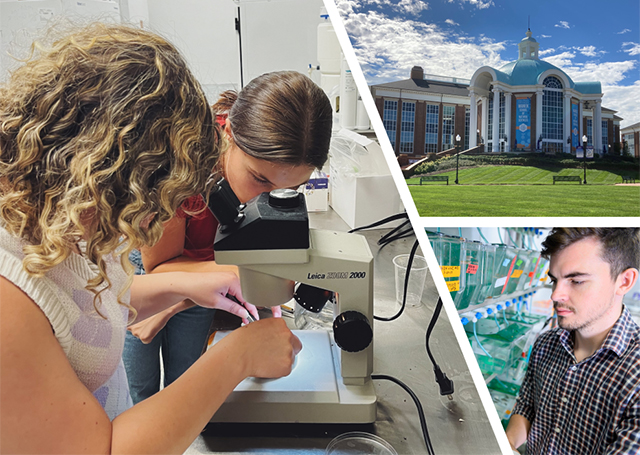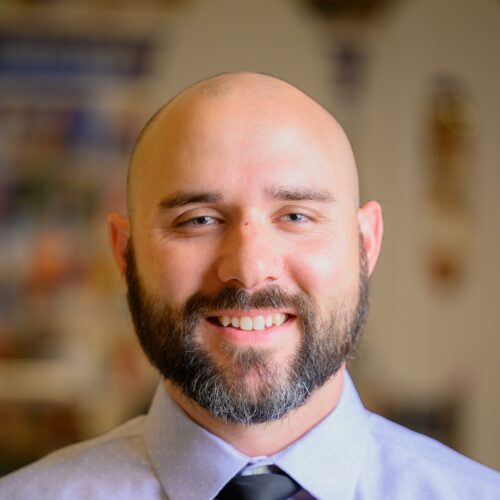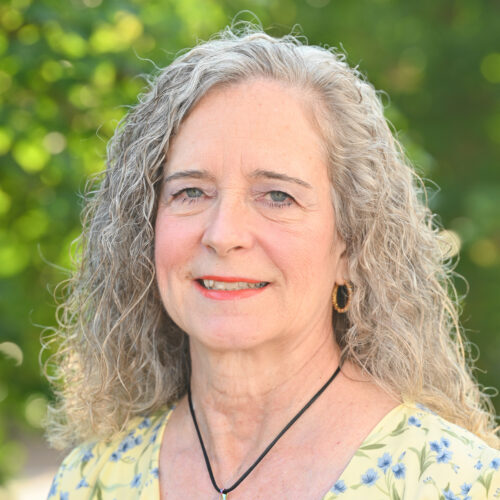To this end, hands-on, experiential learning opportunities are abundant, in the classroom, the teaching laboratories, and through original research with renowned faculty. As a result, our students are prepared for professional leadership and career success.
To this end, hands-on, experiential learning opportunities are abundant, in the classroom, the teaching laboratories, and through original research with renowned faculty. As a result, our students are prepared for professional leadership and career success.
| Degree Requirements | Credits |
|---|---|
| Major Requirements | 56 |
| University Core Requirements | 36-44 |
| Electives | 28-36 |
| Total | 128 |
| Core Courses | Course Title | Credits |
|---|---|---|
| BIO 2001/2002 | Principles of Genetics/Lab | 3/1 |
| NEU 3010 | Cellular and Molecular Neuroscience | 4 |
| NEU 3011/3011L | Systems Neuroscience/Neuroanatomy Lab | 4 |
| PSY 2000 | Introduction to Psychology | 4 |
| PSY/NEU 2600 | Biopsychology | 4 |
| Total Core Courses | 20 | |
Behavioral Neuroscience Track
Additional Core Courses (12 credits)
PSY 2100 – Statistics for Psychology (4)
PSY 2500 – Cognitive Psychology (4)
PSY 3100 – Research Methods (4)
Select 12 Credits from the Following List:
PSY 3510 – Language & Thought (4)
PSY 3520 – Sensation & Perception (4)
PSY 4342 – Cognitive Aging (4)
PSY 4510 – Learning & Memory (4)
PSY 4610 – Drugs & Human Behavior (4)
PSY 4620 – Clinical Neuropsychology (4)
Select 8 credits from the following list.
At least 4 credits must be outside of psychology:
CSC 1710 – Introduction to Computer Programming (4)
NEU 4200 – Neurogenesis (4)
NEU 4210 – Current Techniques in Neuroscience (4)
ITG 3016 – Neuroethics (4)
ITG 4001 – Sports Neuroscience (4)
PSY 2250 – Abnormal Psychology (4)
PSY 2300 – Lifespan Development (4)
PSY 4110 – Undergraduate Research (4)
PSY 4710-4750 – Internship (4)
STS 2950 – Biostatistics (4)
Neurobiology Track
Additional Core Requirement (8 credits)
BIO 3061 – Integrated Human Physiology / Lab (3/1)
PSY 2100, STS 2020, or STS 2910 (4) – Statistics for Psychology or Intro to Statistics or Intro to Statistical Analysis with SAS Applications
Select 12 credits from the following list.
At least 4 credits must have a Lab Component :
NEU 4200 – Neurogenesis (4)
NEU 4210 – Current Techniques in Neuroscience (4)
ITG 3016 – Neuroethics (4)
ITG 4001 – Sports Neuroscience (4)
PSY 3510 – Language & Thought (4)
PSY 3520 – Sensation & Perception (4)
PSY 4342 – Cognitive Aging (4)
PSY 4510 – Learning & Memory (4)
PSY 4610 – Drugs & Human Behavior (4)
PSY 4620 – Clinical Neuropsychology (4)
Select 12 credits from the following list:
CHM 1010/1011 – General Chemistry I/Lab (3/1)
CHM 1020/1021 – General Chemistry II/Lab (3/1)
CHM 2510/2011 – Organic Chemistry I/Lab (3/1)
CHM 2520/2021 – Organic Chemistry II/Lab (3/1)
PHY 1510/1511 – General Physics/Lab (3/1)
STS 2950 – Biostatistics (4)
Students completing the B.S. degree in Neuroscience must take BIO 1500/1501 – Principles of Cell Biology/Lab (3/1) as their Natural Sciences General Education course and MTH 1400 – Pre-Calculus (4) as their Quantitative Reasoning General Education course.
*A student cannot double major in Psychology and Behavioral Neuroscience.
*A student cannot double major in Biology and Neurobiology.
A bachelors degree in Neuroscience at High Point University will prepare you for a variety of career opportunities. The careers available to a student with a BS in Neuroscience overlap significantly with careers available to students with either a biology or psychology degree. Many students may wish to further specialize their education by pursuing advanced degrees. Below are some examples of career opportunities for students graduating with a BS in Neuroscience, as well as careers which Neuroscience students are well prepared to pursue additional training.
| Degree | Behavioral Neuroscience Track | Neurobiology Track | Both Tracks |
|---|---|---|---|
| B.S. | -Psychometrist* -EEG Technologist* -Public Policy -Residential Counselor -Clinical Research Assistant -Special Education Assistant -Patient Care Assistant* -Law Enforcement -Advertising / Marketing | -Laboratory Technician -Medical Healthcare Manager -Pharmacy Technician* -Medical Technician* -Orthotic and Prosthetic Technician* -Sales Engineer -Natural Sciences Manager | -Pharmaceutical Sales -Science Writer -Science Advocacy -Nonprofit Work -Health Educator -Forensic Science Technician -Regulatory Affairs Specialist -Lab Animal Care Technician |
| Master's Degree | -Occupational Therapist -Neuroimaging Technician -Speech-Language Pathologist -Public Health -Social Work -Statistician / Consulting | -Orthotist / Prosthetist -Neural Engineer | -Nurse Practitioner -Physician’s Assistant -Genetic Counselor -Teacher -Epidemiology -Biostatistician |
| Doctorate | -Physical Therapist -Clinical Psychologist -Neuropsychologist -Audiologist -Lawyer | -Dentist -Optometrist -Food Scientist -Pharmacist -Veterinarian | -Medicine -Research Scientist -Professor |
With several faculty specializing in the field of Neuroscience, students will have the opportunity to work in research laboratories studying injury to the nervous system, neural development, odor receptors, and more. The Summer Undergraduate Research Program in Science (SURPS) offers stipends and room/board for students to perform cutting-edge research in the laboratories of High Point University faculty.
High Point University’s Neuroscience Program strives to provide students with state-of-the-art, rigorous, laboratory-intensive training in this interdisciplinary field that enables them to:
- Demonstrate proficiency with the concepts and methodologies of neuroscience;
- Apply scientific methods and ways of thinking, including hypothesis formation, the design and execution of well-controlled experiments, and the analysis and interpretation of experimental results;
- Apply concepts from the various sub disciplines of neuroscience to solve problems;
- Communicate neuroscience concepts and data effectively, both orally and in written form, to the scientific and lay communities;
- Demonstrate an understanding of the ethical and social dimensions of neuroscience, as well as the limitations and assumptions of the field as it is practiced in the US and globally; and
- Demonstrate the understanding and skills necessary to work in a diverse world.









